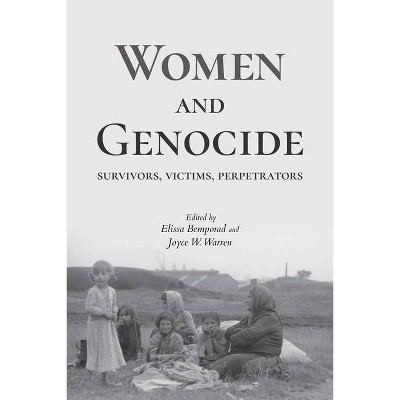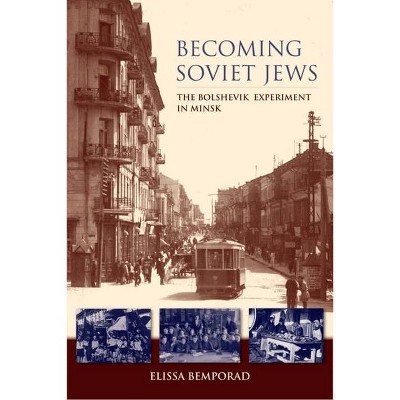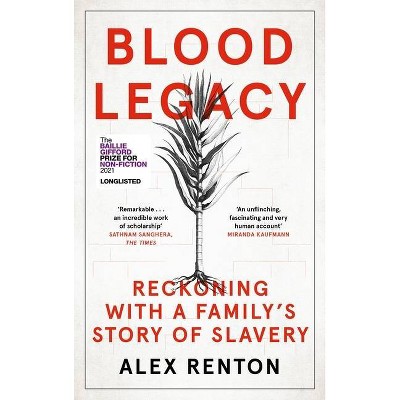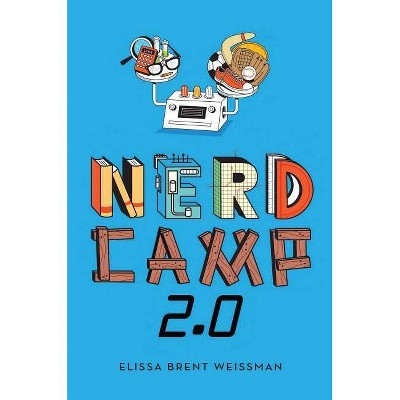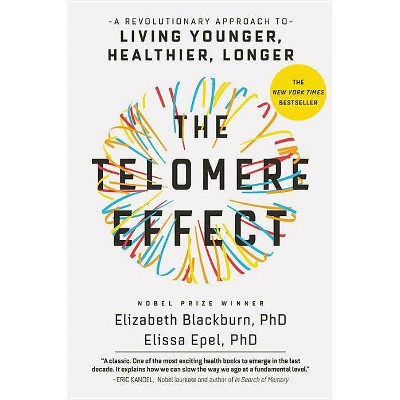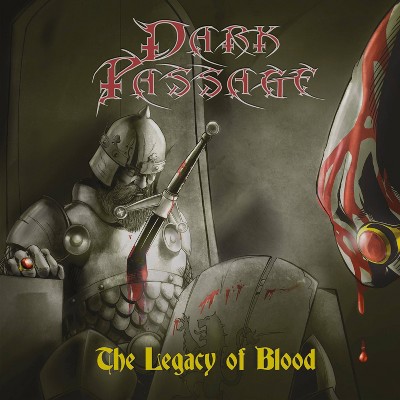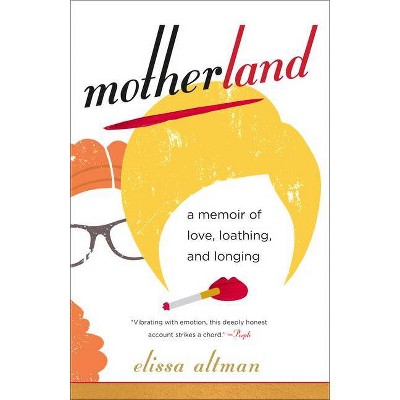Legacy of Blood - by Elissa Bemporad (Hardcover)
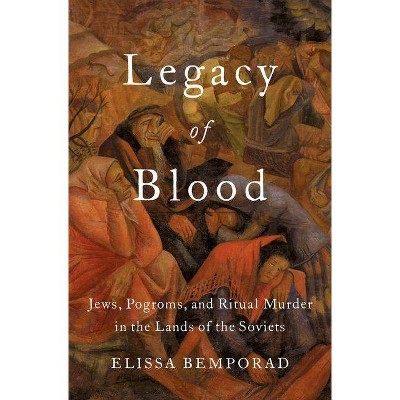
Similar Products
Products of same category from the store
AllProduct info
<p/><br></br><p><b> About the Book </b></p></br></br>"Pogroms and blood libels constitute the two classical and most extreme manifestations of tsarist antisemitism. They were often closely intertwined in history and memory, not least because the accusation of blood libel, the allegation that Jews murder Christian children to use their blood for ritual purposes, frequently triggered anti-Jewish violence. Such events were and are considered central to the Jewish experience in late tsarist Russia, the only country on earth with large scale anti-Jewish violence in the early twentieth century. Boasting its break from the tsarist period, the Soviet regime proudly claimed to have eradicated these forms of antisemitism. But, alas, life was much more complicated. The phenomenon and the memory of pogroms and blood libels in different areas of interwar Soviet Union-including Ukraine, Belorussia, Russia and Central Asia-as well as, after World War II, in the newly annexed territories of Lithuania, Western Ukraine and Western Belorussia are a reminder of continuities in the midst of revolutionary ruptures. The persistence, the permutation, and the responses to anti-Jewish violence and memories of violence suggest that Soviet Jews (and non-Jews alike) cohabited with a legacy of blood that did not vanish. This book traces the "afterlife" of these extreme manifestations of antisemitism in the USSR, and in doing so sheds light on the broader question of the changing position of Jews in Soviet society. One notable rupture in manifestations of antisemitism from tsarist to Soviet times included the virtual disappearance-at least during the interwar period-of the tight link between pogroms and blood allegations, indeed a common feature in the waves of anti-Jewish violence that erupted during the late nineteenth and early twentieth centuries." --<p/><br></br><p><b> Book Synopsis </b></p></br></br>This book traces the legacies of the two most extreme manifestations of tsarist antisemitism-pogroms and blood libels-in the Soviet Union, from 1917 to the early 1960s. Closely intertwined in history and memory, pogroms and blood libels were and are considered central to the Jewish experience<br>in late Tsarist Russia, the only country on earth with large scale anti-Jewish violence in the early twentieth century. But their persistence and memory under the Bolsheviks-a chapter that is largely overlooked by the existing scholarship-significantly shaped the Soviet Jewish experience. <p/>By exploring the phenomenon and the memory of pogroms and blood libels in the Soviet territories of the interwar period as well as, after World War II, in the newly annexed territories, Bemporad studies the social realities of everyday antisemitism through the emergence of communities of violence<br>and memories of violence. The fifty-year-span from the Bolshevik Revolution to the early years of Krushchev included a living generation of Jews, and non-Jews alike, who remembered the Beilis Affair, the pogroms of the civil war and in some cases even the violence of the prerevolutionary years.<br>Bemporad also examines the ways in which Jews reacted to and remembered the unprecedented violence of the pogroms of the Russian Civil War, and how they responded to and which strategies they adopted to confront accusations of ritual murder. By tracing the afterlife of pogroms and blood libels in<br>the USSR, <em>Legacy of Blood</em> sheds light on the broader question of the changing position of Jews in Soviet society. And by doing so it tells the story of the solid yet ever changing and at times ambivalent relationship between the Soviet state and the Jewish minority group.<br><p/><br></br><p><b> Review Quotes </b></p></br></br><br><br>Bemporad has written an engaging, albeit depressing, history of Jews, pogroms, and antisemitic charges of ritual murder. In spite of antisemitism at the social level, the central Soviet state prevailed against antisemitism at least until World War II. -- David Shneer, <em>AJS Review</em><p></p><br><em>Legacy of Blood</em> is an absorbing and meticulously researched and argued study of the continuities and discontinuities of antisemitic ideas and actions in the Soviet Russia and, later, the USSR. -- <em>H-Judaic</em><p></p><br>Bemporad's book... reminds us that if we are ever to dismantle and be free of the racist worlds we have made, we need to understand where these ideas come from, how they get reinforced, and what gives them their power. -- Eileen Kane, <em>Public Books</em><p></p><br>...as Elissa Bemporad teaches us in her concise and compelling book, blood libel and ritual murder had an afterlife in the Soviet Union and the bloodlands of the Holocaust. -- David Biale, University of California, Davis, <em>Jewish Review of Books</em><p></p><br>What [Bemporad] has done is to discharge masterfully the most important task of the historian: analyzing the past to help us understand how we got where we are today. It is our task as their readers to imagine how to chart a better future. -- David N. Myers, UCLA, <em>LA Review of Books</em><p></p><br><em>Legacy of Blood</em>... is the product of great research acumen and an important scholarly achievement. -- Mikhail Krutikov, <em>Forverts</em><p></p><br>Bemporad's book makes a significant contribution to the study of the Jewish question in the USSR... it also provides... a comprehensive study of the history of interethnic relations through the prism of political, social and cultural processes. -- <em>Ab Imperio</em><p></p><br>This book allows for a uniquely dynamic approach to antisemitism in Eastern Europe, as well as a suggestive entry point into the history of Soviet Jews. -- Thomas Chopard, <em>Revue Alarmer: Recherches et enseignements sur l'antisemitisme et les racismes</em> [translated]<p></p><br>It provides an unflinching examination of the political, governmental and social dynamics that led to the violent deaths of hundreds of thousands of Jews in the late 19thÂand early 20th centuries. -- Shelley S. Hebert, <em>The Times of Israel</em><p></p><br>The Soviet state consciously suppressed pogroms and the anti-Semitic myths underlying them, but as Bemporad (Queens College and the Graduate Center, CUNY) shows in this important, well-researched book, these beliefs simply fled underground... Summing Up: Highly recommended -- <em>CHOICE</em><p></p><br>Perhaps the most essential new book on old conspiracies -- <em>Tablet</em><p></p><br>Elissa Bemporad tackles the long-term trauma of early pogroms and their impact on Soviet society up to the 1950s. Examining ritual murder accusations and the official and popular responses to them... -- Jan Burzlaff, <em>Journal of Contemporary History</em><p></p><br>The horrific pogroms in 1918-21 that were perpetrated by several armed forces in the multilateral wars in what became Poland and Soviet Ukraine have been overshadowed by the Holocaust that followed just two decades later. This book describes those pogroms in vivid detail, links them to the hoary<br>myth of Jews using Christians' blood for religious rituals, and contends that the myth persisted into the Soviet period, even as late as the 1960s. Bemporad gives us valuable analytical insights into the nature of antisemitism in the USSR. This is a work of highly original and persuasive research on<br>the persistence of blood libels and pogroms and on the sometimes surprising Jewish reactions to it. -- Zvi Gitelman<p></p><br>In <em>Legacy of Blood</em>, Elissa Bemporad, a leading voice in Soviet Jewish studies, recreates a lost chapter in the history of the Soviet Union's Jewish population. This pioneering study grounds the history of Soviet-Jewish relationsin the horrendous pogroms of the Russian civil war period, when some<br>150,000 innocent people were slaughtered. As a consequence of this violence, Jewish citizens looked to the Soviet state for protection-and the state mostly did protect Jews until the eve of World War II. Popular antisemitism, in the meantime, never entirely disappeared as medieval accusations and<br>rumors of blood libels continued to erupt. This fine study is an essential first chapter in the understanding the Holocaust within the context of Russian and Soviet history. -- Lynne Viola<p></p><br>Elissa Bemporad combines a harrowing exploration of the legacy of Russian Civil War-era pogroms for both Soviet Jews and Soviet authorities with a startling reconstruction of the ways that ritual murder accusations persisted into the Soviet era. The result is a rich and disturbing reconsideration<br>of the history of Soviet antisemitism. <em>Legacy of Blood</em> is a brilliant achievement. -- Paul Hanebrink<p></p><br>A deeply researched, original exploration of the resilience of the darkest anti-Jewish beliefs. Elissa Bemporad raises vexing questions about the underbelly of the Soviet Jewish experience even in its best years before the Second World War. -- Steven J. Zipperstein<p></p><br><br><p/><br></br><p><b> About the Author </b></p></br></br><br>A native of Italy, <strong>Elissa Bemporad</strong> grew up in Modena. She studied Russian language and History at the University of Bologna and earned her doctoral degree from Stanford University. Bemproad lived in Minsk, Belarus, for a year, where she conducted archival research for her first book, <em>Becoming Soviet</em><br><em>Jews: The Bolshevik Experiment in Minsk.</em> She is also the author of <em>Women and Genocide: Survivors, Victims, Perpetrators.</em><br>
Price History
Cheapest price in the interval: 78 on October 27, 2021
Most expensive price in the interval: 78 on November 6, 2021
Price Archive shows prices from various stores, lets you see history and find the cheapest. There is no actual sale on the website. For all support, inquiry and suggestion messagescommunication@pricearchive.us
